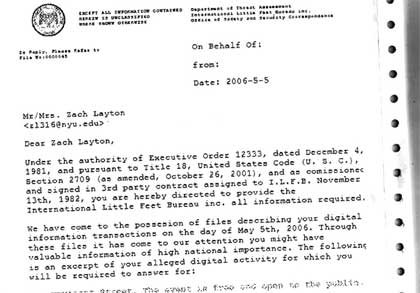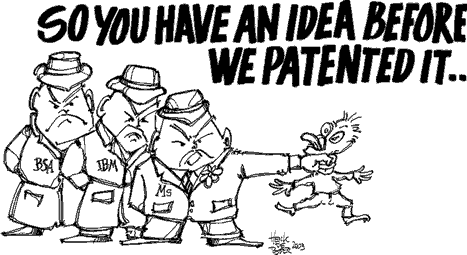I would like to see more real patent claims and more nuts and bolts examples of what should be protected to serve progress and innovation.Yesterday I went to a seminar where
Sanna Wolk, law scholar at the Stockholm University, made a presentation of her software protection research so far. She made quite a thorough presentation on the difference in patent vs copyright infringements, but without assuming any real borders for patents at all.
This is quite worrying, since the possible extent of patentable subject matter make a huge difference on how the patent legislation overlap with copyright. [like in:
Can I patent this film?]
It's as if many academic patent researchers completely ignore the first test in European patent law, the test on if then contribution falls within the exclusions from what we call patentable invention...
Perhaps its too hard to understand what is practical when it sounds technical. Perhaps its the T in IT that does it? It feels as if some law scholars just decide that some things are more technical than other things that are creative and bag them without understanding the art in this matter. This is perhaps what upsets software developers the most in the issue of software patents.
Several core issues in software patents where not mentioned, such as:
- Interoperability exceptions, as asked for by Sun and Google during the EU-directive on software patents.
- Program claims, where publication is a direct infringement, not even suggested by the EU-commission.
It seems to me that the broad patent perspective is in line with the theories that argue that investments is the core requirement for patents rather than real invention. Its probably more simplistic in a legal perspective, but devastating when it comes down to awarding actual progress.
But then again - she is not done with her paper yet. I do hope that she asks the professionals, those skilled in the art. Just as those skilled in the art can learn from lawyers.









